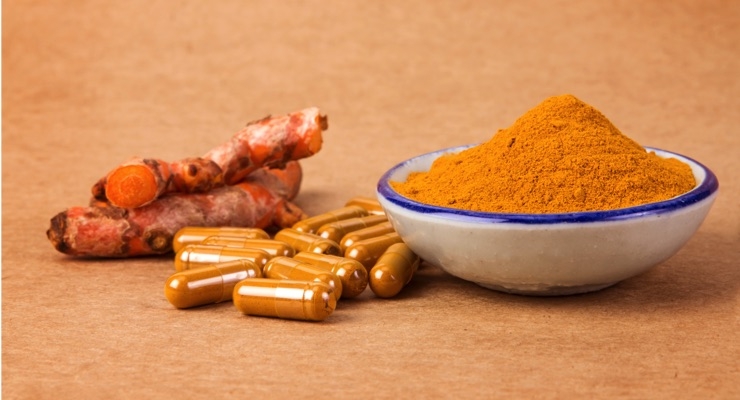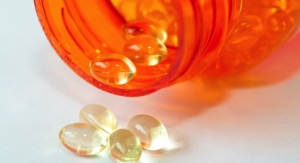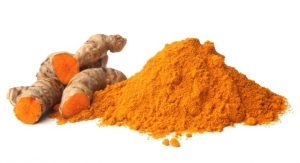Maged Sharaf, PhD, American Herbal Products Association (AHPA)04.03.17
AHPA regularly reviews scientific literature for new research that may be useful to the herbal products and supplement industries. The following are some recent articles published in peer-reviewed journals.
Curcumin for Pulmonary Diseases
This review summarizes the evidence on curcumin’s effectiveness for lung cancer and other pulmonary diseases, observing that most research has been limited to in vitro or animal models. The authors provide additional evidence of curcumin’s efficacy in treating pulmonary diseases and their perspective on future research to improve its pharmacological effects. The review stresses that the most important issue with the use of curcumin in humans is poor bioavailability, which makes it necessary to use adjuvants or curcumin nanoparticles or liposomes.
Curcumin Use in Pulmonary Diseases: State of the Art and Future Perspectives. Pharmacological Research. January 2017
Curcumin Stability
Pure curcumin has low water solubility, poor chemical stability, and low oral bioavailability. This study examined the impact of pH, storage temperature, and molecular environment on the physical and chemical stability of pure curcumin in aqueous solutions and in oil-in-water emulsions. Unlike naturally occurring curcuminoid mixtures (that contain curcumin, demethoxy-curcumin, and bisdemethoxy-curcumin), pure curcumin was highly unstable to chemical degradation in alkaline aqueous solutions and tended to crystallize out of aqueous acidic solutions. The incorporation of curcumin into oil-in-water emulsions improved its water dispersibility and chemical stability. There was little change in the color of curcumin-loaded emulsions when stored under acidic conditions, but its yellow color faded when stored under alkaline conditions. There was no evidence of droplet aggregation or creaming in emulsions stored for 31 days at ambient temperature.
Physical and Chemical Stability of Curcumin in Aqueous Solutions and Emulsions: Impact of pH, Temperature, and Molecular Environment. Journal of Agricultural and Food Chemistry. Dec. 9, 2016
Moderate Ginkgo Doses Do Not Alter Liver Function
Data from the National Health and Nutrition Examination Survey 2001–2012 were used to determine if there is an association between ginkgo consumption and alterations in clinical markers of liver function in U.S. adults. Alcohol intake was used as a positive control. The open access review found that moderate alcohol consumption altered many biomarkers of liver function, but ginkgo, in the formulations and doses typically consumed by Americans, did not affect the same enzymes.
Moderate doses of commercial preparations of Ginkgo biloba do not alter markers of liver function but moderate alcohol intake does: A new approach to identify and quantify biomarkers of ‘adverse effects’ of dietary supplements. Regulatory Toxicology and Pharmacology. March 2017
Chamomile Extract for Anxiety
Chamomile extract produced a clinical reduction in generalized anxiety disorder (GAD) symptoms over eight weeks, with a response rate comparable to those observed for conventional drugs, and a favorable adverse-event profile. Subjects with moderate to severe GAD received 1,500 mg of chamomile extract per day. Primary outcomes were the frequency of clinical response and change in GAD-7 symptom scores by week eight. Secondary outcomes included the change over time on the Hamilton Rating Scale for Anxiety, the Beck Anxiety Inventory, and the Psychological General Well-Being Index. Adverse events and premature treatment discontinuation are also examined.
Short-term open-label chamomile (Matricaria chamomilla L.) therapy of moderate to severe generalized anxiety disorder. Phytomedicine. Dec. 15, 2016
Pomegranate Juice for Reducing Blood Pressure
This meta-analysis of randomized, placebo-controlled trials published in Medline and Scopus investigated the effects of pomegranate juice consumption on blood pressure. Significant reductions were observed in both systolic (SBP) and diastolic blood pressure (DBP) after consumption. Pomegranate juice reduced SBP regardless of the duration and dose consumed, whereas doses >240 milliliters provided a borderline significant effect in reducing DBP.
Effects of pomegranate juice on blood pressure: A systematic review and meta-analysis of randomized controlled trials. Pharmacological Research. Nov. 23, 2016
High Doses of Caffeine Did Not Induce Arrhythmia in Patients with Chronic Heart Failure
Acute ingestion of high doses of caffeine did not induce arrhythmia in patients with chronic heart failure with moderate-to-severe systolic dysfunction and at high risk for ventricular arrhythmias, according to this double-blind, randomized clinical trial with a crossover design involving 51 patients.
Short-term Effects of High-Dose Caffeine on Cardiac Arrhythmias in Patients With Heart Failure A Randomized Clinical Trial. JAMA Internal Medicine. Nov. 13, 2016
Measuring Alcohol in Kombucha Products
A GC/FID method for determining ethanol in commercial kombucha products was developed. The method was validated following the AOAC INTERNATIONAL guidelines for single-laboratory validation. It met the standard method performance requirements approved by the AOAC INTERNATIONAL Stakeholders Panel and was assigned First Action status. The full article is open access.
Determination of Ethanol in Kombucha Products: Single-Laboratory Validation. Journal of AOAC International. Feb. 21, 2017
Maged Sharaf, PhD
American Herbal Products Association (AHPA)
Maged Sharaf, PhD, is the chief science officer of the American Herbal Products Association (AHPA), the national trade association with a focus primarily on herbs and herbal products. AHPA’s membership represents U.S. and international growers, processors, manufacturers, marketers and institutes specializing in botanicals and herbal products. Before AHPA, Dr. Sharaf was the director, Foods, Dietary Supplements and Herbal Medicines at the United States Pharmacopeial Convention (USP). Before USP he was pharmacy associate professor and has preceding experience conducting bioanalytical assay development and validation, and human bioequivalence studies in support of the pharmaceutical industry; and quality control and manufacturing of pharmaceutical dosage forms. He can be reached at
301-588-1171; E-mail: msharaf@ahpa.org; Website: www.ahpa.org
Curcumin for Pulmonary Diseases
This review summarizes the evidence on curcumin’s effectiveness for lung cancer and other pulmonary diseases, observing that most research has been limited to in vitro or animal models. The authors provide additional evidence of curcumin’s efficacy in treating pulmonary diseases and their perspective on future research to improve its pharmacological effects. The review stresses that the most important issue with the use of curcumin in humans is poor bioavailability, which makes it necessary to use adjuvants or curcumin nanoparticles or liposomes.
Curcumin Use in Pulmonary Diseases: State of the Art and Future Perspectives. Pharmacological Research. January 2017
Curcumin Stability
Pure curcumin has low water solubility, poor chemical stability, and low oral bioavailability. This study examined the impact of pH, storage temperature, and molecular environment on the physical and chemical stability of pure curcumin in aqueous solutions and in oil-in-water emulsions. Unlike naturally occurring curcuminoid mixtures (that contain curcumin, demethoxy-curcumin, and bisdemethoxy-curcumin), pure curcumin was highly unstable to chemical degradation in alkaline aqueous solutions and tended to crystallize out of aqueous acidic solutions. The incorporation of curcumin into oil-in-water emulsions improved its water dispersibility and chemical stability. There was little change in the color of curcumin-loaded emulsions when stored under acidic conditions, but its yellow color faded when stored under alkaline conditions. There was no evidence of droplet aggregation or creaming in emulsions stored for 31 days at ambient temperature.
Physical and Chemical Stability of Curcumin in Aqueous Solutions and Emulsions: Impact of pH, Temperature, and Molecular Environment. Journal of Agricultural and Food Chemistry. Dec. 9, 2016
Moderate Ginkgo Doses Do Not Alter Liver Function
Data from the National Health and Nutrition Examination Survey 2001–2012 were used to determine if there is an association between ginkgo consumption and alterations in clinical markers of liver function in U.S. adults. Alcohol intake was used as a positive control. The open access review found that moderate alcohol consumption altered many biomarkers of liver function, but ginkgo, in the formulations and doses typically consumed by Americans, did not affect the same enzymes.
Moderate doses of commercial preparations of Ginkgo biloba do not alter markers of liver function but moderate alcohol intake does: A new approach to identify and quantify biomarkers of ‘adverse effects’ of dietary supplements. Regulatory Toxicology and Pharmacology. March 2017
Chamomile Extract for Anxiety
Chamomile extract produced a clinical reduction in generalized anxiety disorder (GAD) symptoms over eight weeks, with a response rate comparable to those observed for conventional drugs, and a favorable adverse-event profile. Subjects with moderate to severe GAD received 1,500 mg of chamomile extract per day. Primary outcomes were the frequency of clinical response and change in GAD-7 symptom scores by week eight. Secondary outcomes included the change over time on the Hamilton Rating Scale for Anxiety, the Beck Anxiety Inventory, and the Psychological General Well-Being Index. Adverse events and premature treatment discontinuation are also examined.
Short-term open-label chamomile (Matricaria chamomilla L.) therapy of moderate to severe generalized anxiety disorder. Phytomedicine. Dec. 15, 2016
Pomegranate Juice for Reducing Blood Pressure
This meta-analysis of randomized, placebo-controlled trials published in Medline and Scopus investigated the effects of pomegranate juice consumption on blood pressure. Significant reductions were observed in both systolic (SBP) and diastolic blood pressure (DBP) after consumption. Pomegranate juice reduced SBP regardless of the duration and dose consumed, whereas doses >240 milliliters provided a borderline significant effect in reducing DBP.
Effects of pomegranate juice on blood pressure: A systematic review and meta-analysis of randomized controlled trials. Pharmacological Research. Nov. 23, 2016
High Doses of Caffeine Did Not Induce Arrhythmia in Patients with Chronic Heart Failure
Acute ingestion of high doses of caffeine did not induce arrhythmia in patients with chronic heart failure with moderate-to-severe systolic dysfunction and at high risk for ventricular arrhythmias, according to this double-blind, randomized clinical trial with a crossover design involving 51 patients.
Short-term Effects of High-Dose Caffeine on Cardiac Arrhythmias in Patients With Heart Failure A Randomized Clinical Trial. JAMA Internal Medicine. Nov. 13, 2016
Measuring Alcohol in Kombucha Products
A GC/FID method for determining ethanol in commercial kombucha products was developed. The method was validated following the AOAC INTERNATIONAL guidelines for single-laboratory validation. It met the standard method performance requirements approved by the AOAC INTERNATIONAL Stakeholders Panel and was assigned First Action status. The full article is open access.
Determination of Ethanol in Kombucha Products: Single-Laboratory Validation. Journal of AOAC International. Feb. 21, 2017
Maged Sharaf, PhD
American Herbal Products Association (AHPA)
Maged Sharaf, PhD, is the chief science officer of the American Herbal Products Association (AHPA), the national trade association with a focus primarily on herbs and herbal products. AHPA’s membership represents U.S. and international growers, processors, manufacturers, marketers and institutes specializing in botanicals and herbal products. Before AHPA, Dr. Sharaf was the director, Foods, Dietary Supplements and Herbal Medicines at the United States Pharmacopeial Convention (USP). Before USP he was pharmacy associate professor and has preceding experience conducting bioanalytical assay development and validation, and human bioequivalence studies in support of the pharmaceutical industry; and quality control and manufacturing of pharmaceutical dosage forms. He can be reached at
301-588-1171; E-mail: msharaf@ahpa.org; Website: www.ahpa.org



















